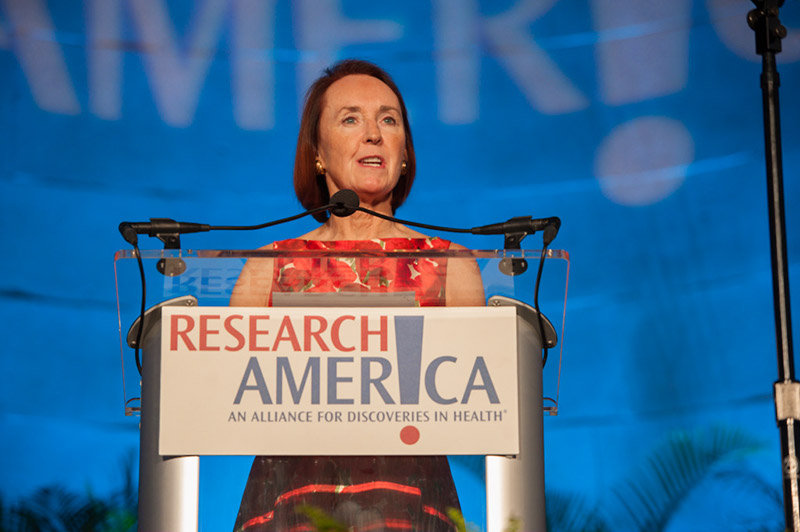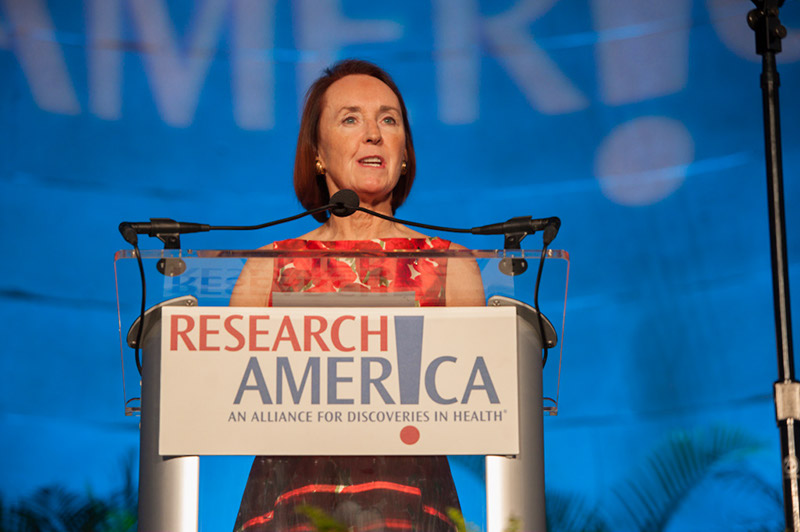Great expectations


Dear Research Advocate,
Earlier today, the Senate passed legislation, known as a Continuing Resolution or “CR,” extending government funding to midnight November 21, 2019. The President is expected to sign the legislation before the end of Fiscal Year 2019, September 30. That means Congress has seven-plus additional weeks to reach an agreement. The problem is that CRs stall progress, and one CR is more than enough! We are launching a campaign to urge Congress to reach a bipartisan agreement by or before November 21st that will ensure robust scientific, health, and medical research funding for all of Fiscal Year 2020. Visit our action page and send an email and/or Tweet to make the case for why life-saving innovation and discovery cannot afford further delay.
Last Friday marked the 74th year for the Lasker Awards, presented to scientists who have made major advances in the understanding, diagnosis, treatment, cure, or prevention of disease. Congratulations to all this year’s awardees, who exemplify what can be accomplished with a steadfast dedication to medical, public health, and scientific research, demonstrating impact that was once unimaginable. CDC Director Robert Redfield captured the import and promise of science during Research!America’s National Health Research Forum: “We are in a time of great expectation about the growing potential of science to provide solutions to what a decade ago seemed like science fiction.”
The Chair of the Lasker Awards Jury, Dr. Joseph L. Goldstein, delivered a keynote address highlighting the inspiring intersection of art and science, in the process making the awards even more accessible to the non-science trained individual. Another example of the entree art provides for science was on display at a recent event marking one year since the inception of the CDC’s AMR Challenge. Since the Challenge began, it has received almost 350 commitments from 33 countries to take specific steps to combat antibiotic resistance (also known as antimicrobial resistance, thus AMR).
In addition to remarks by HHS Secretary Azar and other leaders, Monday evening’s event included art exhibits and a documentary screening, both of which focused on the effect of antibiotic resistance and highlighted why more awareness of this public health threat is so important. Research!America and partners are hosting a briefing on Capitol Hill on AMR on October 24, 2019. More information here.
Research!America Alliance Members met earlier this week with staff from the offices of Representatives Diana DeGette (D-CO) and Fred Upton (R-MI) to discuss their efforts to craft a second 21st Century Cures initiative, doing their important part in meeting the public’s great expectations for the speedier discovery, development and delivery of solutions to what ails us. These champions welcome suggestions for policy changes (and new ideas!) as they work together to craft a “Cures 2.0” bill. If you’d like to think through possibilities together, contact Jenny at [email protected].
NIH’s National Center for Complementary and Integrative Health (NCCIH) held a day-long symposium to mark its 20th anniversary, and to explore what’s next for the field of complementary and integrative health research. Recent studies indicate promising outcomes for mindfulness-oriented recovery enhancement (MORE), a type of behavioral group therapy used to help patients with substance use disorder (SUD). The NCCIH website is a terrific resource; check out, for example, the A to Z overview of this highly impactful facet of health and health care.
Speaking of SUD, tragically, overdose is now the leading cause of death for people under the age of 50. Here is our new fact sheet on SUD, making the case for more research into this public health crisis. Thinking of all the lives at stake, public expectations should and must be great when it comes to addressing this escalating threat.
Sincerely,
Mary Woolley




